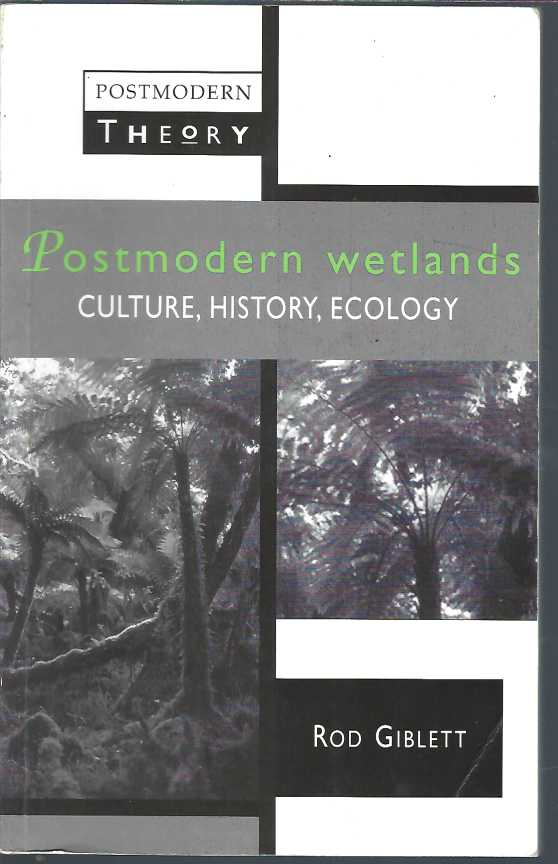(Minimal pencil scoring and annotations in text.)
xiv, 268 pages, [8] pages of plates : illustrations, maps ; 22 cm. #250622
Postmodern Wetlands explores the representation of wetlands (swamps, marshes, etc.) in western culture. For many, wetlands are a place of disease and horror often associated with the melancholy and the monstrous; in short, they are ‘black waters’. Yet, ecologically, wetlands are vitally important for human and other life on earth: they are ‘living’ waters. The aim of this book is to produce a cultural critique of wetlands as both living and black waters. Drawing on a wide range of disciplines and methodologies, the book analyses wetlands in relation to aesthetics and philosophy, cities and human psychology, mythology and narrative and medical, military, social and conservation history. It discusses these issues using examples across a variety of genres and making reference to British, American and Australian wetlands.
Full contents
Ch. 1. Introduction: Where Land and Water Meet
Ch. 2. Philosophy in the Wetlands: The S(ub)lime and the Uncanny
Ch. 3. A Modern City and its Swamp Sett(l)ing: Decolonising Perth’s Wetlands
Ch. 4. The World/Womb as Wetland, the Modern City as Cultural Symptom and the Postmodern City as Swamp
Ch. 5. Swamp Sickness: Marsh Miasma and Bodily Effluvia
Ch. 6. The Nether Regions: Sexuality, the Gendered Body and the Swamps of the Great Mother/Earth
Ch. 7. The Melancholic Marshes and the Slough of Despond: The Psycho(eco)logy of Swamps
Ch. 8. Marsh Monsters and Swamp Serpents: Horror of Horrors
Ch. 9. Rebels and Runaways: The Wetland as Refuge and Site of Resistance
Ch. 10. Conclusion: Writing a Word for Wetlands.
